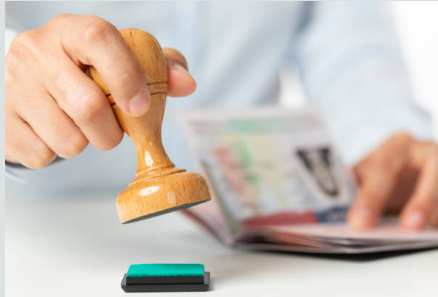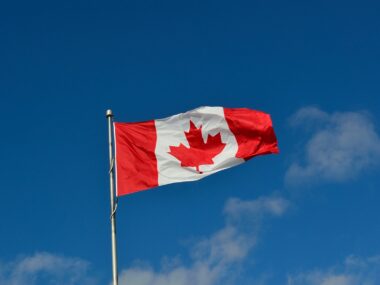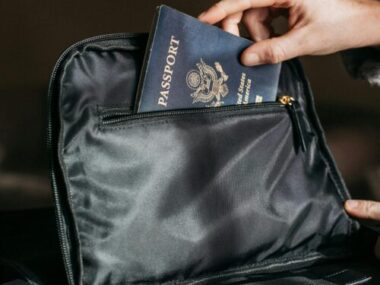Securing a UK travel visa is an essential part of planning your trip, but many travelers find the visa application process daunting.
One of the most concerning outcomes is travel visa rejection, which can cause delays, frustration, and financial loss. Fortunately, there are several steps you can take to minimize the chances of a UK visa rejection.
Understanding UK Travel Visa Requirements
The UK offers various types of visas depending on the purpose of your visit, including tourist visas, business visas, study visas, and work visas.
Each type of visa has its own specific eligibility requirements and documentation needs. It’s essential to understand which visa category applies to your situation and the specific requirements for that category.
Common Types of UK Travel Visas
- Standard Visitor Visa: For tourism, business visits, or to visit friends or family.
- Work Visa: For individuals who intend to work in the UK, including skilled workers and intra-company transfers.
- Student Visa: For those wishing to study at a UK institution.
- Transit Visa: For travelers passing through the UK on their way to another destination.
- Family Visa: For individuals wishing to join family members in the UK.
Each visa has unique criteria, so ensure you select the right type for your trip. Understanding the requirements for your specific visa category is the first step to reducing the likelihood of rejection.
Key Strategies to Avoid UK Travel Visa Rejection
1. Ensure All Required Documentation is Submitted
One of the most common reasons for UK travel visa rejection is missing or incomplete documents. The UK government provides a detailed list of required documents based on the type of visa you’re applying for. These may include:
- A valid passport with at least six months’ validity.
- Proof of sufficient funds to cover your stay in the UK.
- Travel itinerary or proof of accommodation.
- Evidence of ties to your home country (e.g., job, property, or family) to demonstrate your intention to return.
- Visa application forms and payment receipts.
- Additional documents for specific visa categories (e.g., academic records for student visas, job offer letters for work visas).
2. Provide Accurate and Complete Information
Ensure that all the information you provide in your visa application is accurate. Discrepancies or inconsistencies in your application can raise doubts about your intentions, which may result in rejection.
Double-check that all personal details (name, date of birth, passport number) match the information in your supporting documents. Additionally, make sure to fill out all sections of the application form correctly.
Incomplete forms can lead to delays or outright denial of your UK travel visa. Avoid providing false or misleading information, as this can result in an automatic rejection or even a permanent ban from applying for UK visas in the future.
3. Show Proof of Sufficient Funds
For most UK travel visas, you must demonstrate that you have enough financial resources to cover your stay. This may include showing:
- Bank statements from the last three to six months.
- Proof of earnings (such as pay slips or tax returns).
- Sponsorship letters are required if someone else is financing your trip.
The UK immigration authorities want to ensure that you can financially support yourself without relying on public funds during your stay. If you’re applying for a student visa, you may also need to show proof that you have enough funds to cover your tuition fees and living expenses.
4. Provide Evidence of Your Intent to Return Home
The UK visa application process includes an evaluation of your intentions. Immigration officers want to be confident that you will return to your home country once your visa expires. To show that you have strong ties to your home country, consider providing:
- A letter from your employer confirming your employment and the dates of your leave.
- Proof of property ownership or rental agreements.
- Evidence of family relationships that would require you to return.
- A detailed itinerary outlining your plans during your stay in the UK.
By demonstrating that you have commitments in your home country, you show that you do not intend to overstay your visa.
5. Submit an Impressive Travel Itinerary
An organized and well-documented travel itinerary can significantly improve your chances of visa approval. Your itinerary should outline your travel dates, the places you plan to visit, and any accommodations you’ve already booked. This shows the visa officer that you have a clear plan for your time in the UK and are not likely to overstay.
For tourist visas, providing a detailed itinerary can demonstrate that your travel is well-organized and genuine. If you’re visiting family or friends, include an invitation letter from your host, along with their address and contact information.
6. Prepare for the Interview
In some cases, you may be asked to attend an interview as part of the visa application process. The interview is an opportunity for the visa officer to verify the information you’ve provided and assess your intentions. Here are some tips to prepare for the interview:
- Be honest and consistent in your answers.
- Provide clear explanations for any questions regarding your travel plans, financial situation, or ties to your home country.
- Dress professionally and be punctual.
- Avoid providing unnecessary details that may complicate your answers.
A well-prepared interview can enhance your chances of receiving approval.
7. Consult an Immigration Lawyer or Expert
If you’re unsure about any aspect of the visa application process, consider consulting an immigration lawyer or visa consultant. They can provide expert advice on how to improve your application, help you gather the necessary documents, and offer guidance on how to avoid common pitfalls.
An immigration expert can also assist with complicated cases, such as if you’ve had a visa refusal in the past or if you’re applying for a visa with unusual circumstances. Their assistance can be invaluable in ensuring your application is as strong as possible.
FAQs About Avoiding UK Travel Visa Rejection
1. What are the common reasons for UK visa rejection?
Common reasons for UK visa rejection include incomplete or incorrect documentation, lack of financial proof, failure to demonstrate the intention to return to your home country, and providing false or misleading information.
2. How long does it take to get a UK visa decision?
The processing time for a UK visa application typically takes around 15 business days for standard applications. However, this can vary depending on the type of visa and the specific circumstances of your application.
3. Can I appeal a UK visa rejection?
Yes, you can appeal a visa rejection if you believe the decision was wrong. However, this can be a complex process, and it’s advisable to seek legal assistance if you plan to appeal.
4. Do I need to submit biometric information for a UK travel visa?
Yes, in most cases, applicants will be required to submit biometric information, including fingerprints and a photograph, as part of the visa application process.
5. Can I apply for a UK travel visa after a previous rejection?
Yes, you can reapply for a UK travel visa after a rejection. However, it is essential to address the reasons for the previous rejection and provide additional supporting documents to strengthen your new application.
6. What should I do if I have a previous UK travel visa refusal?
If you have a previous UK travel visa refusal, it’s important to be transparent about it in your new application. Provide any additional documentation that may address the reasons for the refusal and demonstrate that your situation has changed.
Conclusion
Applying for a UK travel visa can be a complex and challenging process, but by following the steps outlined, you can significantly increase your chances of avoiding rejection.
Ensure that you provide all required documentation, fill out the application accurately, demonstrate your financial stability, and clearly show your intention to return to your home country after your trip.
With proper preparation, you can navigate the UK travel visa application process smoothly and avoid unnecessary setbacks.






